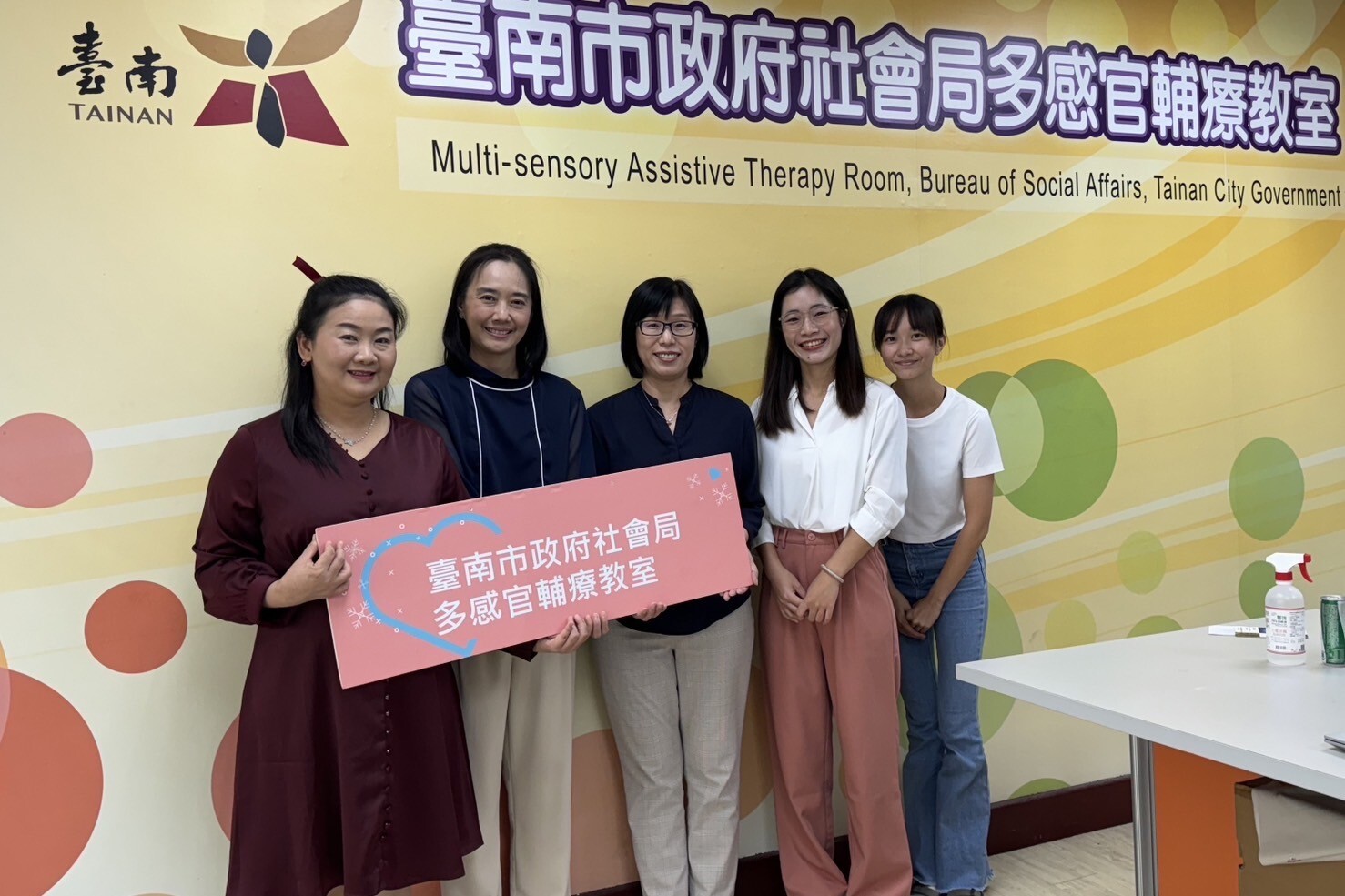SDG3
Contributing to Taiwan's Medical Device Industry: NCKU Becomes First University Licensed to Manufacture and Sell Medical Devices
“As a comprehensive university, National Cheng Kung University (NCKU) has sought to transform itself from a large and traditional institution as it pushes forward the frontiers of smart medicine and pandemic prevention by strengthening industry-government-academia collaboration to create a more promising future for Taiwan. This is what NCKU has been striving for.” On July 8th, 2022, NCKU obtained medical device manufacturing and a selling licenses issued by the Public Health Bureau, Tainan City Government, becoming the first university to do so in Taiwan since the Medical Devices Act took effect in 2021.
At a ceremony on the morning of July 8th, NCKU President Huey-Jen Su received the licenses from I-Lin Hsu, Director General of the Tainan Public Health Bureau. A number of respected guests were present to witness this historic moment, including Dr. Hong-Chen Chen, Director General of the Department of Life Sciences, MOST, Meng-Ru Shen, Superintendent of NCKU Hospital, Chih-Han Chang, Director of the Medical Device Innovation Center, NCKU, and Yi-Shan Tsai, Director of the Clinical Innovation and Research Center, NCKU.
In her speech, NCKU President Su said that NCKU was very happy to achieve mutual growth with the city of Tainan and has since found its purpose as a university. NCKU has recently been working with the Tainan City Government by using artificial intelligence in the reading and verification of screening Covid-19 rapid test results, which is further connected to the “Tainan Shared Care Cloud.” NCKU enthusiastically hopes to make the best use of its health research capacity and give back to the city of Tainan and society.
President Su also stressed that NCKU, as a comprehensive university, has spared no effort to search for new paths and build new realities with the generous help of many allies and partners as well as the university’s faculty and staff. Through a deep linkage between technology and academia, NCKU is able to conduct accurate research and reevaluate experimental validation. Being licensed to manufacture and sell medical devices is also an active effort that reflects NCKU’s ambition to accelerate the progress toward a brighter future, which has been the responsibility and mission of NCKU since its inception.
As pointed out by Hong-Chen Chen, NCKU has long been renowned for its great contribution to the field of medical devices, with a series of efforts to promote talent cultivation, strengthen innovation and research capabilities, and initiate industry-academia collaboration. In recent years, NCKU and its affiliated hospital have strongly incorporated big data and artificial intelligence into smart medicine while taking an active role in a number of programs relating to smart medicine and precision health promotion hosted by MOST, Taiwan. By obtaining a license to manufacture and sell medical devices, NCKU has established a new milestone for smart medicine.
Hong-Chen Chen stressed that precision health is one of the six core strategic industries in Taiwan and is also regarded as a major objective of government policy. Given that smart medicine plays a crucial role in the promotion of precision health, MOST recruits research institutions and medical centers as partners to jointly promote smart medicine in the five key dimensions: building data infrastructure, innovating the software and hardware development of medical devices, evaluating clinical validity, creating a forensic framework, and ensuring the development of medical clusters. With the coordination of policy implementation across departments and agencies, NCKU has sought to promote precision medicine in the hope of making Taiwan a benchmark country in precision health.
I-Lin Hsu observed that industry-government-academia collaboration should be changed to academia-government-industry collaboration because collaborations to promote the development of medical devices are currently being led by universities. Clearly, NCKU has made adequate preparations over the years and has achieved remarkable success. With wide support from the public and private sectors, Tainan is anticipated to become Taiwan’s best biotech city in promoting health for all citizens.
On May 1st, 2021, the Medical Devices Act was brought into force not only to encourage the research and development of medical devices but also to accelerate product innovation and time-to-market efforts. The Act was promulgated to allow educational institutions, legal persons, and organizations to apply for licenses associated with medical devices in order to enhance the speed to market, thus benefiting patients and promoting the development of industry.
As pointed out by the NCKU Medical Device Innovation Center, a university that applies for registration as a medical device manufacturer and then successfully obtains a product license boasts four competitive edges. Firstly, unlike a profit-driven corporation, a university will optimize the first-mile mobility in the commercialization of innovative medical devices. Secondly, companies that intend to develop innovative medical devices may tap into the research capabilities of a university in order to accelerate the process of obtaining licenses for medical devices or products. Thirdly, with a university taking full responsibility for the medical device product life cycle, it is very likely that the R&D team within the university will change their mindsets and pay equal attention to the quality, safety, and efficacy of medical products while simultaneously focusing on technological breakthroughs. Fourthly, the surveillance after a medical device or product is launched involves newly emerging clinical evaluation methods and forensic science that require clinical evidence in real-life situations. This may lead to further collaborations across disciplines and fields.
NCKU and its affiliated hospital have long been dedicated to research in smart medicine and have helped to foster the development of industry through the integration of various advantages of different departments and colleges, by allocating resources in research design and development in order to meet the unmet needs proposed by NCKU Hospital. After newly created medical devices have been clinically validated using feedback intervention at the affiliated hospital, NCKU will continue to partner with industry allies to jointly create an R&D added-value supply chain for innovation in smart medicine. In terms of talent cultivation, NCKU became in 2021 Taiwan’s first university that conducts training and certification for medical device technicians (Documentation No.: 1109023531), which no doubt contributes to the medical device industry in Taiwan.
Under the guidance of a number of government agencies, including MOE, MOST, MOHW, and the Tainan City Government, NCKU has sought to accelerate the development of innovative medical devices, promote industry-academia collaboration, foster startups, and expand overseas connections alongside its Medical Device Innovation Center and Clinical Innovation and Research Center, thereby obtaining two licenses for manufacturing and selling medical devices in compliance with current law regulations.
For example, NCKU Hospital received consultation services from MOHW for medical devices based on artificial intelligence and machine learning technology about its clinically validated body composition analyzer this year. An application for medical device certification is expected soon. This sets an example for other universities to emulate in conducting R&D in innovative medical devices and obtaining licenses accordingly.
NCKU and its affiliated hospital have shouldered the responsibility as an educational and research institution while staying focused on providing services and ensuring the health of people in Taiwan. By assisting in the promotion of national public policy, the protection of healthcare, and industrial development and transformation, NCKU has created a deep linkage with biotech industries for years in order to improve biomedical technology. Through responding to the needs of society and addressing key global issues, NCKU has realized the true spirit of an excellent university.
At a ceremony on the morning of July 8th, NCKU President Huey-Jen Su received the licenses from I-Lin Hsu, Director General of the Tainan Public Health Bureau. A number of respected guests were present to witness this historic moment, including Dr. Hong-Chen Chen, Director General of the Department of Life Sciences, MOST, Meng-Ru Shen, Superintendent of NCKU Hospital, Chih-Han Chang, Director of the Medical Device Innovation Center, NCKU, and Yi-Shan Tsai, Director of the Clinical Innovation and Research Center, NCKU.
In her speech, NCKU President Su said that NCKU was very happy to achieve mutual growth with the city of Tainan and has since found its purpose as a university. NCKU has recently been working with the Tainan City Government by using artificial intelligence in the reading and verification of screening Covid-19 rapid test results, which is further connected to the “Tainan Shared Care Cloud.” NCKU enthusiastically hopes to make the best use of its health research capacity and give back to the city of Tainan and society.
President Su also stressed that NCKU, as a comprehensive university, has spared no effort to search for new paths and build new realities with the generous help of many allies and partners as well as the university’s faculty and staff. Through a deep linkage between technology and academia, NCKU is able to conduct accurate research and reevaluate experimental validation. Being licensed to manufacture and sell medical devices is also an active effort that reflects NCKU’s ambition to accelerate the progress toward a brighter future, which has been the responsibility and mission of NCKU since its inception.
As pointed out by Hong-Chen Chen, NCKU has long been renowned for its great contribution to the field of medical devices, with a series of efforts to promote talent cultivation, strengthen innovation and research capabilities, and initiate industry-academia collaboration. In recent years, NCKU and its affiliated hospital have strongly incorporated big data and artificial intelligence into smart medicine while taking an active role in a number of programs relating to smart medicine and precision health promotion hosted by MOST, Taiwan. By obtaining a license to manufacture and sell medical devices, NCKU has established a new milestone for smart medicine.
Hong-Chen Chen stressed that precision health is one of the six core strategic industries in Taiwan and is also regarded as a major objective of government policy. Given that smart medicine plays a crucial role in the promotion of precision health, MOST recruits research institutions and medical centers as partners to jointly promote smart medicine in the five key dimensions: building data infrastructure, innovating the software and hardware development of medical devices, evaluating clinical validity, creating a forensic framework, and ensuring the development of medical clusters. With the coordination of policy implementation across departments and agencies, NCKU has sought to promote precision medicine in the hope of making Taiwan a benchmark country in precision health.
I-Lin Hsu observed that industry-government-academia collaboration should be changed to academia-government-industry collaboration because collaborations to promote the development of medical devices are currently being led by universities. Clearly, NCKU has made adequate preparations over the years and has achieved remarkable success. With wide support from the public and private sectors, Tainan is anticipated to become Taiwan’s best biotech city in promoting health for all citizens.
On May 1st, 2021, the Medical Devices Act was brought into force not only to encourage the research and development of medical devices but also to accelerate product innovation and time-to-market efforts. The Act was promulgated to allow educational institutions, legal persons, and organizations to apply for licenses associated with medical devices in order to enhance the speed to market, thus benefiting patients and promoting the development of industry.
As pointed out by the NCKU Medical Device Innovation Center, a university that applies for registration as a medical device manufacturer and then successfully obtains a product license boasts four competitive edges. Firstly, unlike a profit-driven corporation, a university will optimize the first-mile mobility in the commercialization of innovative medical devices. Secondly, companies that intend to develop innovative medical devices may tap into the research capabilities of a university in order to accelerate the process of obtaining licenses for medical devices or products. Thirdly, with a university taking full responsibility for the medical device product life cycle, it is very likely that the R&D team within the university will change their mindsets and pay equal attention to the quality, safety, and efficacy of medical products while simultaneously focusing on technological breakthroughs. Fourthly, the surveillance after a medical device or product is launched involves newly emerging clinical evaluation methods and forensic science that require clinical evidence in real-life situations. This may lead to further collaborations across disciplines and fields.
NCKU and its affiliated hospital have long been dedicated to research in smart medicine and have helped to foster the development of industry through the integration of various advantages of different departments and colleges, by allocating resources in research design and development in order to meet the unmet needs proposed by NCKU Hospital. After newly created medical devices have been clinically validated using feedback intervention at the affiliated hospital, NCKU will continue to partner with industry allies to jointly create an R&D added-value supply chain for innovation in smart medicine. In terms of talent cultivation, NCKU became in 2021 Taiwan’s first university that conducts training and certification for medical device technicians (Documentation No.: 1109023531), which no doubt contributes to the medical device industry in Taiwan.
Under the guidance of a number of government agencies, including MOE, MOST, MOHW, and the Tainan City Government, NCKU has sought to accelerate the development of innovative medical devices, promote industry-academia collaboration, foster startups, and expand overseas connections alongside its Medical Device Innovation Center and Clinical Innovation and Research Center, thereby obtaining two licenses for manufacturing and selling medical devices in compliance with current law regulations.
For example, NCKU Hospital received consultation services from MOHW for medical devices based on artificial intelligence and machine learning technology about its clinically validated body composition analyzer this year. An application for medical device certification is expected soon. This sets an example for other universities to emulate in conducting R&D in innovative medical devices and obtaining licenses accordingly.
NCKU and its affiliated hospital have shouldered the responsibility as an educational and research institution while staying focused on providing services and ensuring the health of people in Taiwan. By assisting in the promotion of national public policy, the protection of healthcare, and industrial development and transformation, NCKU has created a deep linkage with biotech industries for years in order to improve biomedical technology. Through responding to the needs of society and addressing key global issues, NCKU has realized the true spirit of an excellent university.
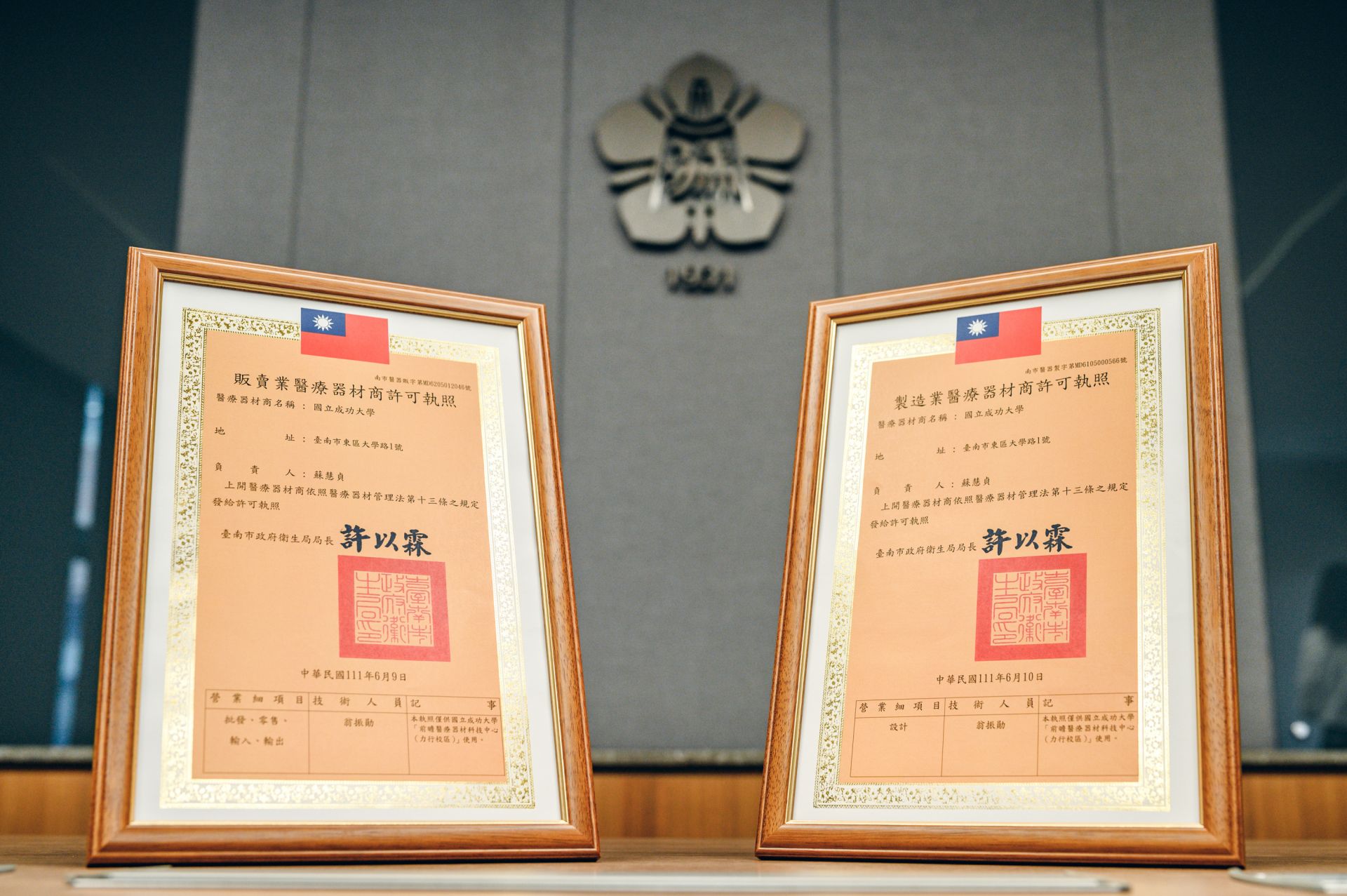
NCKU obtained medical device manufacturing and a selling licenses, becoming the first university to do so in Taiwan

NCKU was very happy to achieve mutual growth with the city of Tainan and has since found its purpose as a university, said NCKU President Su
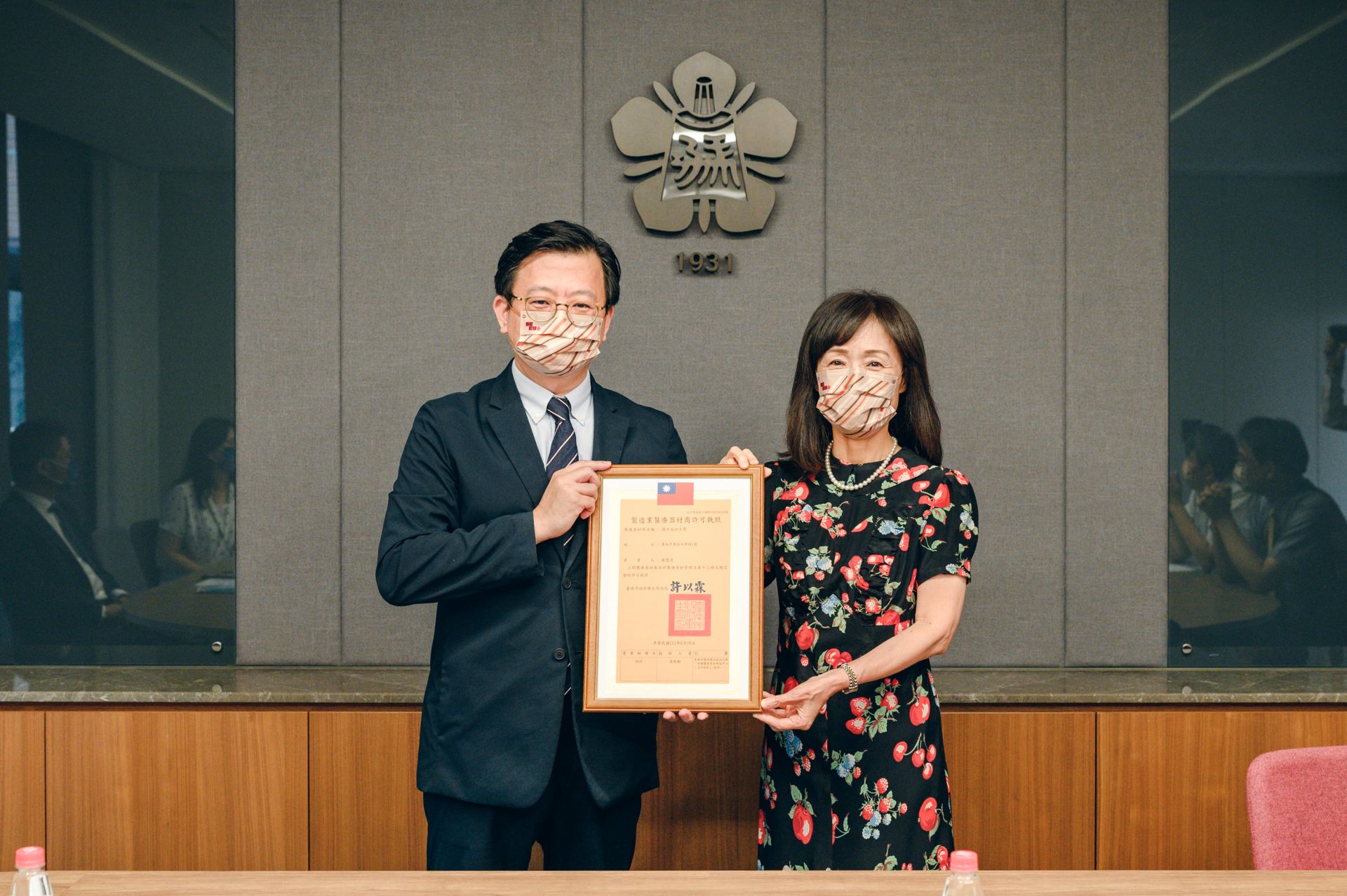
NCKU President Huey-Jen Su received the licenses from I-Lin Hsu, Director General of the Tainan Public Health Burea
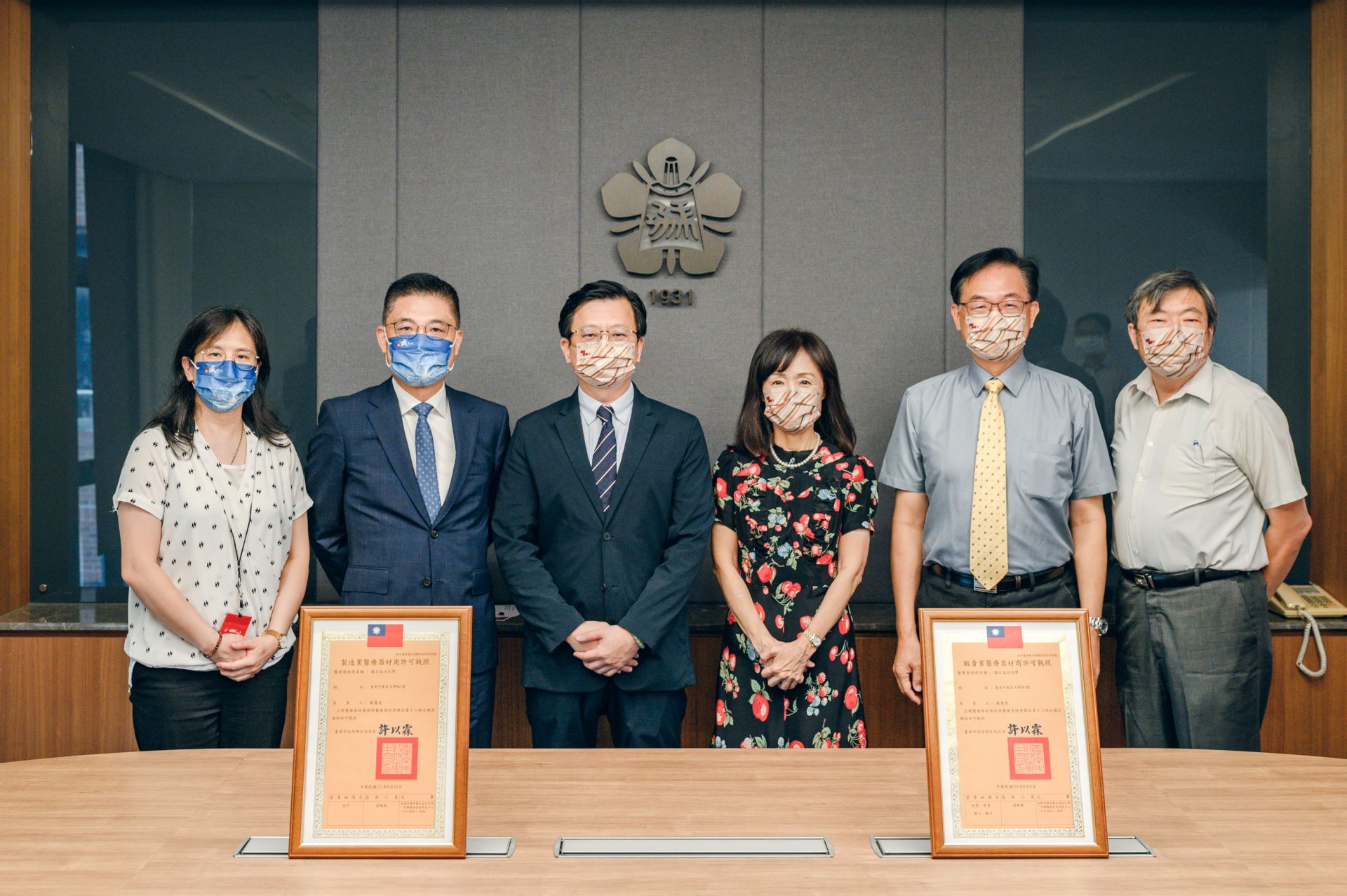
Professors in NCKU and NCKU hospital were invited in the ceremony
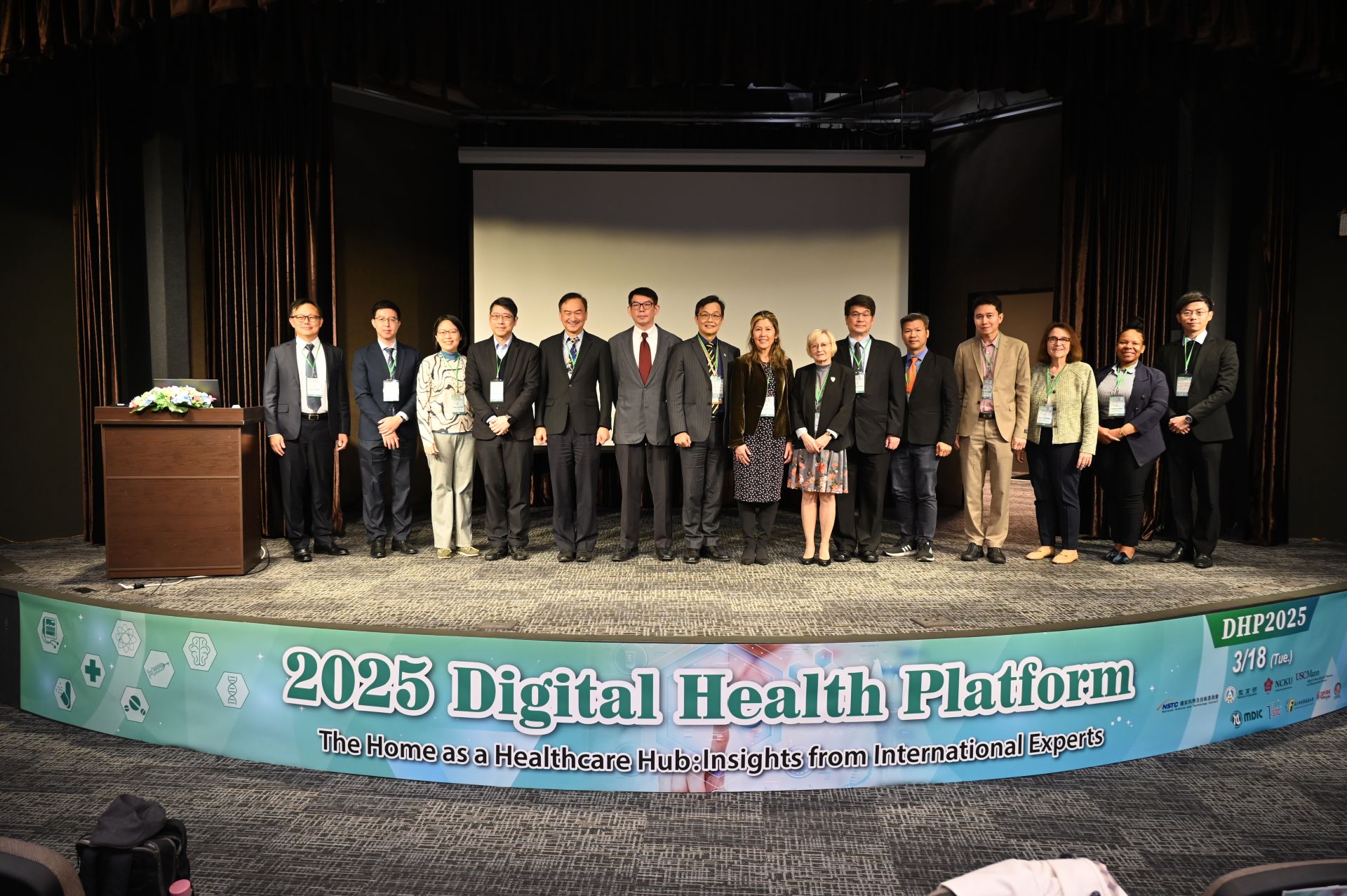
SDG3NCKU Hosts 2025 Digital Health Platform: The Home as a Healthcare Hub—International Expert Insights on Risks and Safety Guidance
View more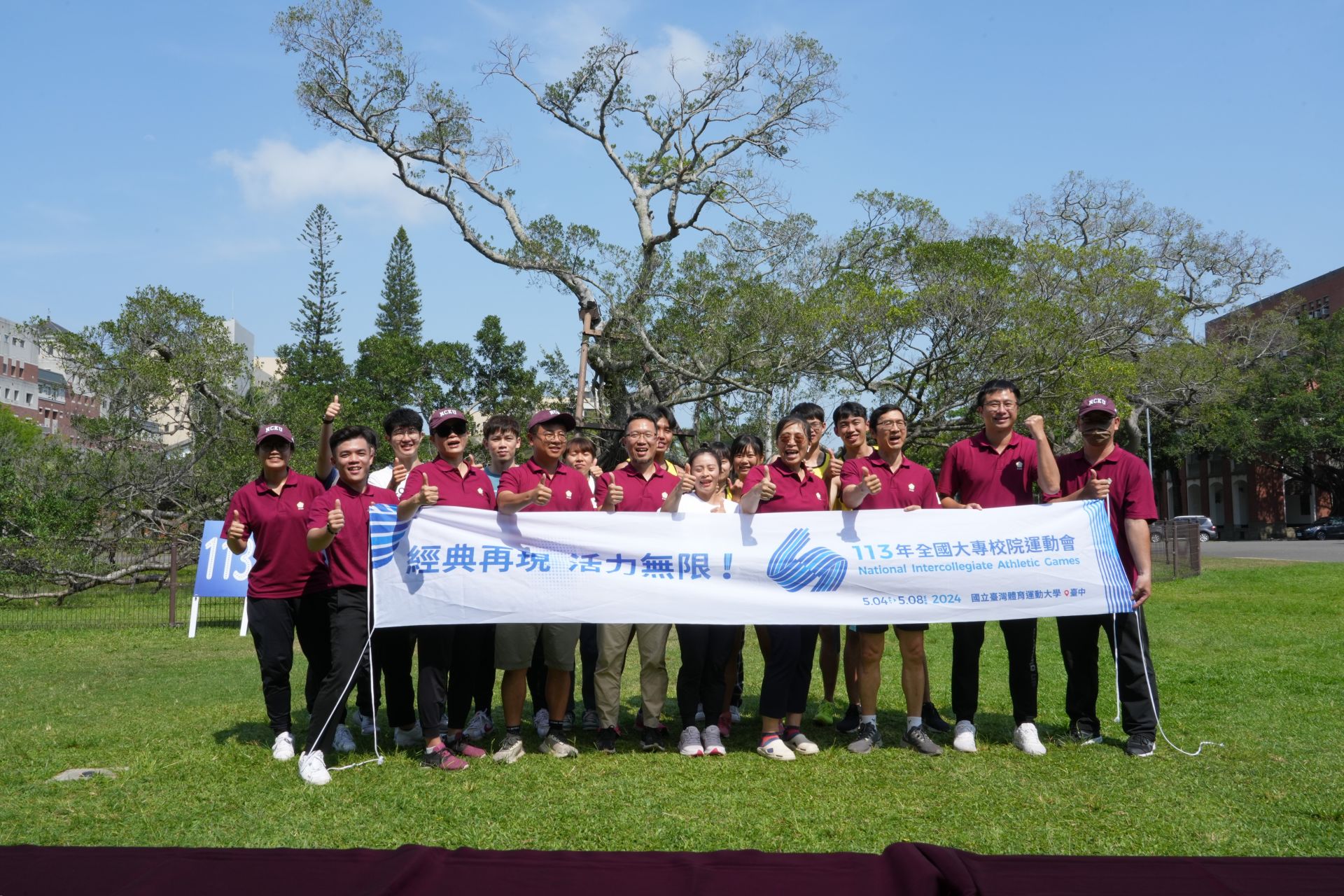
SDG3The torch relay for the 113th National Intercollegiate Athletic Games arrived at NCKU.
View more